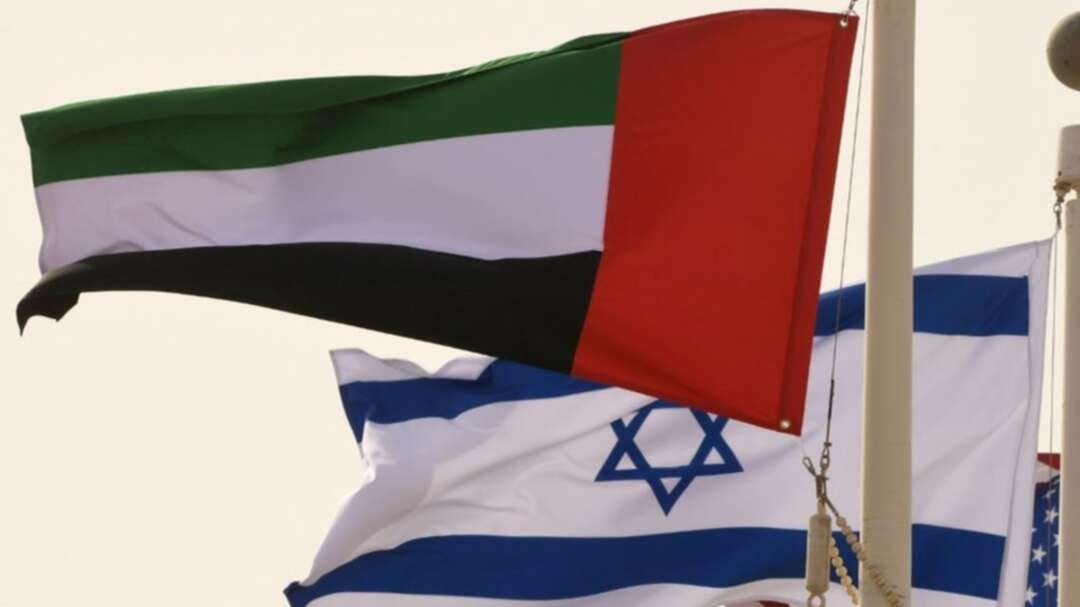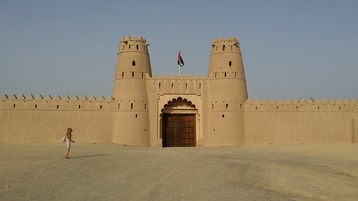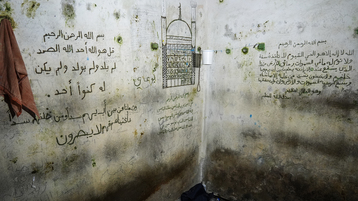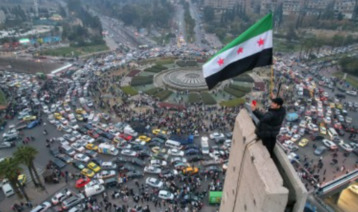-
Arab-Israeli rapprochement is stalled by conflict

The conflict between Israel and the Palestinians embarrassing those Arab governments that recently normalised relations with Israel.
The much-trumpeted Abraham Accords - that saw the UAE, Bahrain, Morocco and Sudan all sign agreements with Israel - were always going to be hostage to events on the ground. Now those events have descended into deadly violence, any further public warming of relations between the Arab states and Israel has been put on hold.
The Abraham Accords, concluded with such fanfare in the final months of the Trump administration, saw several Arab countries not only normalise their relations with Israel but also cooperated with it in a wide range of sectors including security and intelligence - something unprecedented. Within weeks of the signings in Washington, the Gulf gave the head of Israel's external intelligence agency, Mossad, a VIP welcome - something unthinkable.
The governments of the signatory nations, especially the UAE and Bahrain, find themselves in a very uncomfortable position with their populations as they told them of the coming benefits of teaming up with Israel in the fields of trade, tourism, medical research, green economics and scientific development. However, they now feel embarrassed as 24-hour TV footage show the bombardment of Gaza by Israel, the threatened eviction of Palestinians from their East Jerusalem homes and the recent storming by police of that city's sacred Al-Aqsa Mosque compound.
The Saudis are breathing a sigh of relief that they resisted the US pressure to normalise relations with Israel maybe the expected that something like this could happen.
Jerusalem, as the third holiest site in Islam after Mecca and Madina, holds a special place in the hearts of Muslims and Arabs across the world, so the events at the Al-Aqsa mosque have touched a raw nerve for Saudis as well as others in the region. Bahrain's government has been one of several to issue statements this week reaffirming its support for the Palestinian cause. X
Michael Stephens, an Associate Fellow at the London-based think-tank Royal United Services Institute, notes that the Arab promise that the Abraham Accords would provide countries like the UAE some influence over Israel to help the Palestinian cause has turned out to be empty.
Most Arab governments in the Gulf have little love for Hamas. But the sympathies of those countries' Arab populations lie firmly with the Palestinians. If there was some reluctance amongst them to accept the newfound friendship with Israel after so many decades of antipathy then recent events will have only increased their scepticism.
So how will this conflict affect relations between Israel and its Arab partners in the long term?
That depends in large part on how much longer it lasts and whether casualties keep rising. For now, the Arab states which normalised relations cannot afford to be seen to be close to a state that is killing Palestinians, whatever the provocations from Hamas.
Michael Stephens said that: "There is no way the UAE will break off the Abraham Accords. But relations will go into a holding pattern until events calm down".
In practice that means bilateral contacts will carry on privately behind closed doors, as they have done for years, but the good smiling days and joint ambassadorial press conferences are most likely paused now.
By Frank Gardner
BBC security correspondent
You May Also Like
Popular Posts
Caricature
BENEFIT Sponsors Gulf Uni...
- April 17, 2025
BENEFIT, the Kingdom’s innovator and leading company in Fintech and electronic financial transactions service, has announced its sponsorship of the “Innovation and Sustainable Technology Solutions Competition (GU - IST Solutions), hosted by Gulf University at its main campus.
This strategic sponsorship reflects BENEFIT’s active role in advancing technological innovation and fostering sustainable solutions to future challenges. It also seeks to empower Bahraini youth by enhancing their skills, capabilities, and competitiveness in innovation and solution development—contributing meaningfully to the broader goals of sustainable development across all sectors.
As part of BENEFIT’s active involvement in the competition, the company has announced that Hanan Abdulla Hasan, Senior Manager of Public Relations and Communication, will serve on the competition’s supervisory committee. Her upcoming participation reflects BENEFIT’s forward-looking commitment to championing academic and professional excellence.
Commenting on the occasion, Hanan Abdulla Hasan, Senior Manager of Public Relations and Communication at BENEFIT, said, “We are privileged to support this pioneering initiative, which aligns seamlessly with BENEFIT’s enduring commitment to fostering innovation and nurturing the potential of Bahrain’s youth. Our participation is rooted in a deep sense of social responsibility and a firm belief in the pivotal role of innovation in shaping a sustainable future. Through such platforms, we seek to empower the next generation with the knowledge, skills, and foresight required to develop impactful solutions that address future challenges, in line with the United Nations Sustainable Development Goals 2030.”
Dr. Aseel Al Ayash Dean of the College of Engineering in Gulf University commented, “We extend our sincere gratitude to BENEFIT for their generous sponsorship and support of the Innovation and Sustainable Technology Solutions Competition. This contribution plays an instrumental role in helping us achieve the strategic goals of this initiative, namely, cultivating a culture of innovation and sustainability, encouraging efforts that address the imperatives of sustainable development, and enhancing the practical and professional capabilities of our students and participants.”
The event will bring together a diverse spectrum of participants, including secondary school students, university undergraduates, engineers, industry professionals, entrepreneurs, academic researchers, and subject matter experts representing a wide range of disciplines.
The competition seeks to inspire participants to develop and present innovative, sustainable technologies aimed at addressing pressing environmental, social, and economic challenges. It encourages the formulation of business models that integrate advanced technological solutions with core principles of sustainability. Moreover, it serves as a platform for emerging leaders, entrepreneurs, and innovators to contribute to the advancement of the Sustainable Development Goals, promote the ethos of responsible technology, and demonstrate its transformative potential across various sectors.
Attendees will have the opportunity to view a series of project presentations submitted by participants, covering diverse areas such as eco-friendly product design, smart and sustainable innovations, renewable energy technologies, water conservation and management, waste minimisation and recycling, green architectural solutions, and sustainable transportation systems. Outstanding projects will be formally recognised and awarded at the conclusion of the event.
opinion
Report
ads
Newsletter
Subscribe to our mailing list to get the new updates!






















